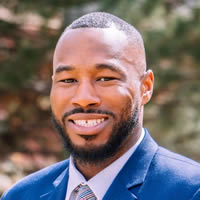
Stephanie L. Canizales
Stephanie L. Canizales is an Assistant Professor of Sociology at the University of California at Merced. Stephanie specializes in migration and immigrant incorporation, children and youth, inequality, poverty, and mobility, race/ethnicity, and organizations. Her book project, entitled Sin Padres, Ni Papeles, systematically examines why undocumented, unaccompanied Central American and Mexican youth migrate to Los Angeles, California, and how they incorporate into school, work, family, and community life as they come of age without parents. Her next project will more closely analyze youths’ experiences as labor migrants, their entry into and participation in the U.S. workforce and economy, and to further investigate the strategies youth employ to navigate poverty and mobility in a timely manner. She specializes in migration and immigrant integration, children and youth, inequality, poverty, mobility, and race and ethnicity.
For the 2020–2021 IRP Scholars-in-Residence Program she chose to visit the Center for Population Inequality and Policy at the University of California, Irvine.
Stephanie L. Canizales was a 2018–2019 IRP Emerging Poverty Scholars Fellow.

Prentiss Dantzler
Prentiss Dantzler is an Assistant Professor of Sociology at the University of Toronto.
Currently, Prentiss’ research is focused on 4 projects:
- racial capitalism and urban development processes,
- housing assistance and neighborhood change across the Toronto metro area,
- the role of nonprofit organizations in shaping gentrification narratives, and
- equitable housing policies in local comprehensive planning.
For the 2020–2021 IRP Scholars-in-Residence Program he chose to visit the Institute for Research on Poverty at the University of Wisconsin–Madison.

Brian Holzman
Brian Holzman is a Research Scientist at the Houston Education Research Consortium at Rice University.
His primary research interests include understanding racial/ethnic and socioeconomic inequalities in college access and success and evaluating policies and interventions that can reduce gaps between groups.
For the 2020–2021 IRP Scholars-in-Residence Program he chose to visit the Center for Poverty Research at the University of California, Davis.